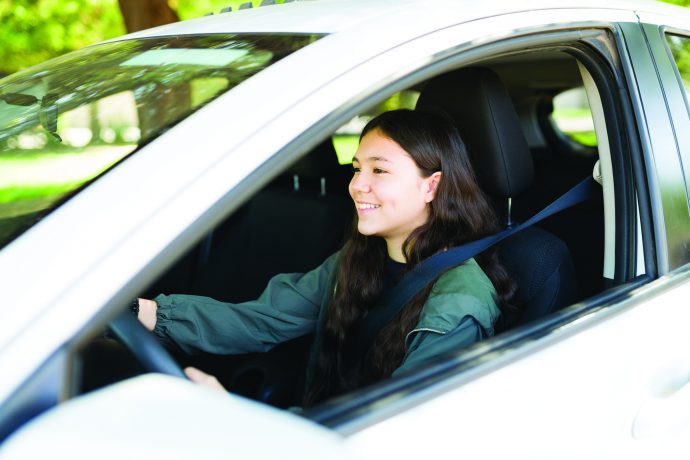The road can be a dangerous place for the unwary. Pedestrians and anyone using a motorised vehicle (car, motorcycle, or even electric scooters) are at risk of road accidents. It is crucial for parents to teach teenagers about road safety from a young age.
Pedestrian road safety and awareness should form the basis, as it will help your teen to better relate to the dangers that he may pose to pedestrians when he is driving.
The important basics that everyone should know:
- Walk on pedestrian footpaths or away from traffic.
- Walk facing oncoming traffic and stay alert by watching the road and surroundings.
- Use an overhead pedestrian bridge or road crossing to cross a road.
- Never assume that oncoming drivers of vehicles can see you and be prepared to move away.
- Avoid distractions when walking/jogging/cycling (e.g. texting, listening to loud music on earphones, etc).
Getting a licence
Legally, a teenager can obtain a driver’s licence by age 16 (motorcycle) or 17 (car). You should not rely solely on driving schools to teach your teen about road safety. You can still groom your teen into becoming a responsible and safe driver.
Road accidents can be caused by many factors. Listed below are some of the key ones that your teen should pay attention to:
- Driving while distracted. This is a common cause of accidents; distractions can come in the form of talking/joking with passengers, talking on the phone, texting, eating or drinking. Also, remember to keep both hands on the steering wheel!
- Lack of driving experience. This can lead to poor judgement in:
– accurately gauging a safe speed when taking turns or sharp corners
– estimating distances when parking or manoeuvring through traffic
– reacting poorly in emergency situations - Impaired judgement/fatigue. Driving under the influence of drugs and/or alcohol is a recipe for disaster and parents must be strict when it comes to prohibiting such behaviour. Similarly, avoid driving when feeling too tired or sleepy (especially driving long distances or over an extended period of time); instead find a safe location to stop for some rest/sleep. Be alert of medicines that cause drowsiness.
- Poor driving conditions & road hazards. Heavy rains can cause bad visibility or flash floods; in this situation, it is better to find a safe place to stop and wait out the weather. Avoid driving with your hazard lights on; these should only be used if you are forced to stop on the roadside. Road hazards can be spotted early if your teen is observant and focused while driving, giving him ample time to react appropriately.
- Poor maintenance. Vehicle servicing and maintenance is crucial to ensure your car is roadworthy and safe to use. If you want your teen to be responsible for this, teach him what needs to be serviced or maintained.
P for Patience
Many Malaysians have a rather blasé attitude when they are on the road. Traffic rules/laws are there for public safety, thus should not be disregarded. Disregarding them will increase the chance of an accident happening.
Children excel at imitation, and they will rapidly pick up your driving habits and etiquette. If you teach them the correct way to drive, yet do not adhere to what you have taught, your lessons will not hold any water.
Patience is certainly a virtue that most drivers lack, so do teach your teen how to practise patience on the road. Do also prepare him or her how to deal with road bullies, lousy drivers, or nasty queue-cutting behaviour. It is sometimes better to just give way and be kind on the road, rather than to prove your point as a disgruntled driver.
Start them young
As a parent, you must remember to drive carefully and responsibly, especially when your child is observing. If you consistently fail to show a good example, then you cannot expect them to pick up good habits. You’ll probably see the ugly side when he drives you around one day!
Start forming your teen’s foundation on road safety awareness from young: it is an essential skill not just for him when he is a pedestrian, but also once he starts driving. Being aware of potential road hazards as a pedestrian will help him become a better driver someday, who is more considerate for pedestrians and other road users.
An educational contribution by Malaysian Paediatric Association.







Comments